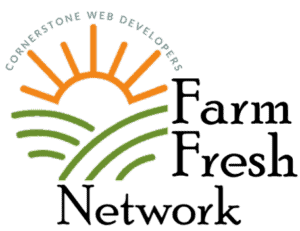This is a guest post written by Edwine Alphonse, who joined Ramp in March 2021 as their first controller. Edwine is also a CPA and has held many leadership roles at EY, PwC, and Circle. She currently resides in Boston with her family.
For many small business owners, the idea of an audit is one that is nerve-wracking. Compiling financial statements and ensuring that they’re audit-ready can take weeks, if not months, if there isn’t a system in place to automate these processes. By introducing automation to your financial operation, you can make the audit process simple and straightforward giving you confidence that you’re presenting auditors with accurate and reliable financial information.
In this article, I share the benefits of introducing automation to your accounting tasks to help audit-proof your record keeping. That said, many of the tips shared are simply good practice, so even if you aren’t worried about audits, be sure to consider implementing automation to keep your accounting processes more organized.
What exactly is automation in accounting?
We all know how long it can take to manually categorize business expenses. We also know how long creating spreadsheets and manually inputting line items into those sheets can take. Automation solves these annoyances, and many other problems, by leveraging artificial intelligence (AI) technology, such as OCR, to complete these processes for you.
For example, with automation, you can create business expense categories that automatically match transactions that fit a certain criteria to the proper category. By creating rules with automation in place, you can say “goodbye” to repetitive accounting tasks that were never efficient in the first place. In short, you’ll get precious time back to work on other aspects of your business, and you can worry less about whether or not your financial reporting is accurate.
How can automation streamline the audit process?
It goes without saying that audits can be a stressful experience for advisors and small business owners. And often, because of the lack of automated workflows, it can be a very reactive exercise since many small business owners typically don’t have processes set up to streamline it. However, by introducing automation, you can spend less time worrying about the accuracy of your financial statements and more time growing your business.
To help conquer the audit process, are a few areas where accounting automation can be a huge bonus for your business or practice.
Expense policies
Expense policies are a much-needed document for any scaling business. They ensure that you have very clear guidelines for your employees to know what is permissible or not. Additionally, having a clear policy prevents constant questioning by employees and potential infractions. Without automation, chasing employees for unapproved spending can be a tedious end-of-the-month activity, making the book closing processes a pain. So while there’s no way to automate the creation of an expense policy, the enforcement of that policy can be automated.
By automating enforcement of policies at the beginning of a period, you make it easy for an auditor to review the expense policy as well as make sure your employees have been adhering to it. This way, you’re creating preventative controls rather than reactionary ones.
Business expense categorization and mapping
When you’re undergoing an audit, auditors always want to make sure that your expense categorization and mapping is consistent. Let’s say you buy a computer and assign it to the computer equipment category. Going forward, you always want to ensure that you’re using the same category for all computer equipment.
Without automation, going through all your expenses and ensuring proper categorization can be very manual and time-consuming. With automation, you can create rules and categorization based on vendors. For example, at Ramp, all expenses from Apple are automatically assigned to the computer and equipment category.
Automate the process by creating rules and mapping to eliminate the manual labor of categorizing after the fact one transaction at a time. This way, when auditors run their tests, you don’t have to explain why a computer expense was assigned to the ‘Equipment’ category one month and to ‘Software and Subscription’ the next month.
Real-time expenditure notifications
Without automation, real-time insight into expenditures can be nonexistent. This leaves you in the position of having to review transactions days, or weeks after they’ve occurred. When it comes time for an audit, the time you spend reviewing these transactions can take precious time away from your preparation work in other areas. Plus, if there are issues with any expenses, you need to also take time to follow up on them, doubling your workload.
Automation gives you real-time visibility into expenses by notifying you of any transactions over a certain amount. This way, you can make sure that any expenses over a certain threshold are always reviewed by the appropriate people. By reviewing purchases in real time, you once again save yourself the trouble of having to revisit large transactions weeks after they’ve happened.
Take the headache out of audits with automation
Running accounting for businesses can be challenging enough. Making sure that your business’s finances are as audit-proof as possible is even tougher. By introducing automation to your accounting, you can take the guesswork and the manual handling out of the process. Thanks to Ramp’s integration with Xero, all of the automation mentioned above is possible. No more chasing receipts, manually categorizing expenses, or delays in expense visibility.
Find out more about Ramp here, including a trial.
The post How to leverage automation to audit-proof your record keeping appeared first on Xero Blog.
This is a guest post written by Edwine Alphonse, who joined Ramp in March 2021 as their first controller. Edwine is also a CPA and has held many leadership roles at EY, PwC, and Circle.
The post How to leverage automation to audit-proof your record keeping appeared first on Xero Blog.Read MoreAdvisors, Bookkeepers, Small businessSmall business – Xero Blog

